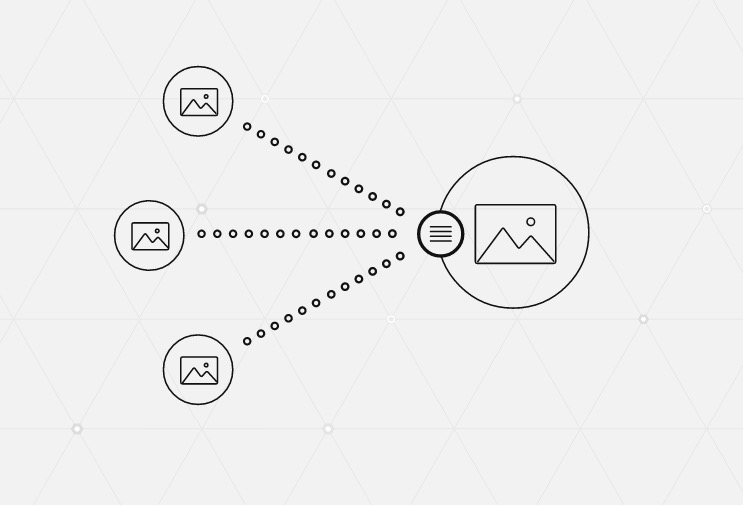Char Mullin makes drawings and publishes them online, and yesterday she found that someone posted one of her drawings on their own site without attributing the drawing to her. How profoundly wack.
Here’s the drawing:

The piece was published on Mullin’s Tumblr and got more than 90,000 notes. A little while later her friend saw the image on someone else’s Facebook, with no attribution.
“My friend messaged me saying, ‘Hey, is this piece yours? I recognised it but wasn’t sure’ and sent me a screenshot of one of his Facebook friends posting it with a comment like ‘this!!!’ but with no links to my blog or credit,” Mullin said in a Twitter direct message interview from London, where she lives.
https://twitter.com/charlubby/status/791660573670961152
But there’s a new product out from some Brooklyn devs that seeks to solve this exact problem. It’s called Mediachain, and it uses artificially intelligent neural networks to basically learn what images look like. It then records the original image’s metadata onto a blockchain, so that the metadata becomes immutable. This way, if ever anyone wants to show that that piece of photography or art is theirs, they can show evidence. Perhaps even more interesting, is that Mediachain has started a digital library of Creative Commons images with all the metadata intact. It’s like Flickr, but super easy to use and way smarter.
“Mediachain is a decentralized media metadata protocol that allows parties to make cryptographically signed statements about creative works,” cofounder Dennis Nazarov wrote in a post on Medium. “Those statements can then be looked up using an instance of the media itself. In the future, if you have an image that comes up in your feed and you know nothing about it, you could look up its mediachain and find its history.”
Part of the way it does that is through its own technology, the Mediachain Indexer Core. This piece of software uses neural networks to literally learn pictures. Images that appear edited or having had a filter added to them will stand out to the machine as non-originals.
“Mediachain Indexer Core is a state of the art, high-relevance, aesthetics-weighted, image search engine and reverse image search for the world’s 400 million+ Creative Commons licensed images,” according to the company’s GitHub. “Achieving a human-like sense of aesthetics, while balancing with the need for high-relevance results is a significant challenge. The Mediachain Indexer achieves this using the latest in end-to-end supervised deep neural networks.”
https://twitter.com/charlubby/status/791660965712519168
Pretty wild stuff. Perhaps unsurprisingly, Mediachain has drawn the biggest of the venture capitalists. In June, Andreessen Horowitz and Union Square Ventures led a $1.5 million funding round. Reddit cofounder Alexis Ohanion also participated in the round.
We showed the site and explained it to Mullin, who was enthusiastic.
“That is super amazing and would be so fantastic for basically everyone involved in something creative, I love it,” she wrote.

Finding photos to use in Creative Commons for articles is something Technically Media staff carp about every so often. It takes a long time and the photos are not well tagged. We’ve used Mediachain to find photos for a couple stories recently, and it is far superior to anything else we’ve used.
Intellectual property is one of the things we’re most interested in here at Technical.ly Brooklyn. As the world gets eaten up by robots who are able to manufacture, ship, trade and G-d knows what else better than we can, our competitive advantage over machines will be our most human of qualities: opposable thumbs creativity. Mediachain seems like it could be a terrific tool down the road for protecting our biggest assets.







